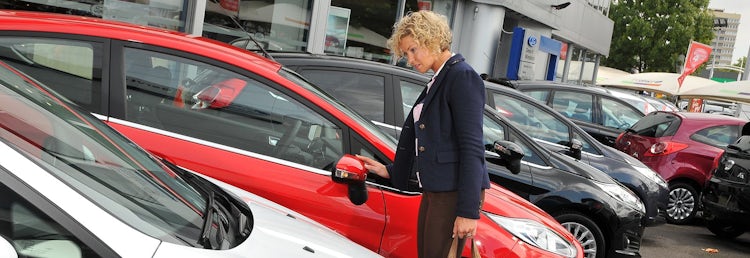Used BMW X3 cars for sale
Find the right second hand BMW X3 for you through our network of trusted dealers across the UK
Looking to buy a used BMW X3 (2017-2024)? Get a full car history check
How buying a used car through carwow works
Find a car
Use carwow to browse and compare used vehicles, advertised by a network of trusted dealers. You can search by make and model, or apply filters to find the perfect car for you.
Contact the dealer
Once you’ve found a car you’d like to buy, you can contact the dealer to arrange the next steps, whether that’s asking a question or taking it for a test drive.
Buy the car
When you’re happy to buy, you can do so at a fixed price, safe in the knowledge all models sold through carwow are mechanically checked and come with a warranty.
Used BMW X3 pros and cons
Sell your car for what it's really worth
The free, easy way to get 5,500+ dealers all over the UK bidding on your car
Is a second hand BMW X3 a good car?
The third-generation BMW X3 was on sale between 2017 and 2024, and during that time it had a well-earned reputation for being one of the best mid-sized SUVs to drive. But it’s no one trick pony, because it’s also pretty luxurious inside while also being practical enough for family life.
Budget-allowing, you’ll want to go for a model introduced in 2021 or later as an update brought a more chiselled exterior and two large screens inside to make the cabin feel more modern.
Something that’s present for all models, though, is a high quality interior that feels suitably upmarket. It’s also really spacious, with plenty of room for adults in the rear seats and a 550-litre boot that’s a match for alternatives such as the Audi Q5 and Mercedes GLC. It’s worth noting that you do lose some boot capacity if you go for the plug-in hybrid model, though.
As well as the fuel-sipping hybrid there’s a good choice of petrol and diesel engines, and if you’re looking for an SUV with sports car-rivalling performance you could also consider the 510hp BMW X3 M Competition – though its sporty character means it’s nowhere near as comfortable as the regular car. If you want an electric version, check out used BMW iX3 models.
Whichever version you go for you can be sure that the BMW X3 is good to drive. It’s impressively capable of putting a smile on your face on a twisty road, and it’s quiet and refined at motorway speeds. The suspension isn’t as comfy over bumps as the Audi Q5, though.
What to look for when buying a used BMW X3
All models cost similar amounts for annual road tax, but the 20d is the one to go for if fuel economy is your key concern, particularly if you do high mileage. The plug-in hybrid will offer the best economy if you can regularly charge the batteries, but its electric range of about 30 miles means you’ll probably still need to call on the petrol engine pretty regularly.
BMW doesn’t have an amazing reputation for reliability, and finished in the middle of the table in the most recent Driver Power owners survey. The X3 finished 36th out of the top 50 cars to own, which isn’t terrible with a score of 86.2%. Nearly new models could still be under the manufacturer’s warranty, making them more appealing.
Although there are no major alarm bells for the X3, it’s worth noting that BMW repairs can be rather pricey, so if you have a car that’s not covered by a manufacturer warranty, any issues could be quite expensive.
BMW X3 FAQs
Used car buying guides
Popular used car models
- Used Audi A1 Sportback
- Used Citroen C5 Aircross
- Used Fiat 500
- Used Ford Fiesta
- Used Hyundai i10
- Used Hyundai Ioniq 5
- Used Jaguar E-PACE
- Used Jaguar F-PACE
- Used Jaguar I-PACE
- Used Kia Ceed
- Used Kia Niro
- Used Kia Picanto
- Used Kia XCeed
- Used Land Rover Defender 110
- Used Mazda CX-5
- Used Mercedes-Benz A-Class
- Used Mercedes-Benz CLA
- Used Mercedes-Benz GLA
- Used MG MG4 EV
- Used MG ZS
- Used Peugeot 208
- Used Peugeot 3008
- Used Polestar 2
- Used Renault Clio
- Used SEAT Ateca
- Used SEAT Ibiza
- Used SEAT Leon
- Used Skoda Kodiaq
- Used Toyota Aygo X
- Used Toyota Yaris Cross
- Used Vauxhall Corsa
- Used Vauxhall Grandland X
- Used Vauxhall Mokka
- Used Volkswagen T-Cross
- Used Volkswagen Tiguan
* In line with the Consumer Rights Act 2015










